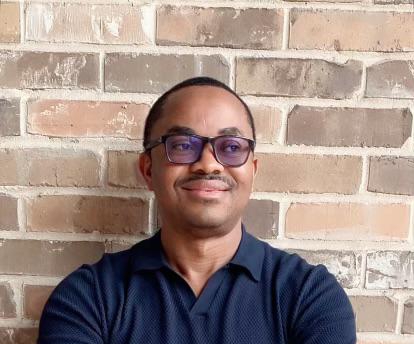By Okike Ezugwu
I met Osmund Agbo as I met most people: through a shared penchant for reading and writing. He had hit me up after reading one of my articles, and we struck up a conversation. “Agbo,” already betrayed him as someone from my own part of Igbo-land. I told him—this perhaps brought some amusement—that my longer surname is actually Ezugwu-Agbo, and that even so, one would not have exhausted the whole thing. The rational thing to do, when the time came, was to drop one in the good sake of brevity.
I had mistaken Agbo for one of the drive-by admirers one sometimes had; a patron of art and not a practitioner. As you already know, I was wrong. He sent me some opinion pieces he had written. As I settled to it, the feeling split evenly between awe and admiration. That marked my first encounter with Osmund Agbo, the writer. Ever since, I have read nearly everything Agbo has written, even checking up on him during periods that indicated artistic drought.
Agbo is by every rational standard an excellent writer. And this is to avoid overstepping the bounds of modesty. One thing I find especially appealing about his opinion pieces is how facts-fired, perspective-broadening they always are. His opinions are often replete with history and geography, sprinkled with allusions, very often felicitous and some other times slightly missing their targets. Agbo’s writings cut through the underbelly of North America, explore the ever-stimulating intrigues of the South, stop at crisis-ridden Middle East and ultimately come home to the intractable conundrum that is Africa. As an illustration, if Agbo writes say about the crisis rocking Rivers State (and he recently did), he would go beyond the unashamed scramble for local resources going on there. He would struggle, by the dint of research, residual knowledge or hindsight, to find historical equivalents. Agbo leaves the reader believing that indeed nothing is nothing new under the sun.
Agbo forms a very formidable intellectual coalition with the other two of some of Nigeria’s most consequential contemporary critics of power. In the mix you have the unsparing, brutally polemical Farooq Kperogi, and the more subtle, yet deep-cutting Moses Ochonu. As Nigeria is now a relentless poverty machine, spinning swiftly and turning out final products of “the poor” at scarcely paralleled industrial scale, the trio stand out in their unrelenting interventions for pauperized Nigerian people. This is even more so as majority of educated Nigerians now regard the country as a sunken cost, not worth any serious-minded person’s time.
The three Musketeers, as they have been fondly described -Agbo, Ochonu and Kperogi – can easily afford comfort in faraway North America, but nevertheless keep sleepless nights for the victims of the cruel Nigerian state. Kperogi’s unsparing, wholesale onslaught on the neoliberal principles turning Nigeria into a mass graveyard is noteworthy. First it shows good, even perspicacious understanding of what is going on. Second, any person of average education knows how risky it is for a man of his stature to take a public stance against the deep-state, well-heeled global forces propagating these principles around the world. In his long-running activism, Kperogi has crossed the Rubicon and burnt his tent. I have nothing but admiration for these champions even as I do not agree with everything they say or write.
Agbo’s first formal book was published over two years ago, aesthetically titled; “Black Grit, White Knuckles, the Philosophy of Black Renaissance.” I had the privilege of having him sign a copy for me in his Enugu home while we did bouts of palm wine. It is actually more appropriate to say; ‘while I did bout of palm wine’ – Agbo is hardly a drinker but is that kind of liberal influence that loves being a spectator to his friends’ drinking. In “Black Grit, White Knuckles,” Agbo argues vigorously, with a lot of history to boot, that it is high time black people world over stopped screaming blue murder about historical injustices and put their shoulders to the wheel, to lift the dignity of the black race. This opinion has over the decades gained considerable currency in mainstream black scholarship and I find tremendous merits in it too. I reviewed the book, a review which was published in many Nigerian platforms.
Agbo, to borrow Okey Ndibe’s phraseology, is strictly guilty of the “scandal of productivity.” He almost breathlessly followed BlacK Grit with a novel, Velvet Court, wherein he explored a very modern theme, a radical shift from the traditional African way of telling stories. This is a more pronounced scandal when you consider that Agbo is a medical doctor fully in the swim of his profession. How he manages to find time for the arduous demand of writing remains a marvel. He shared mouthwatering excerpts from Velvet Court for months before its eventual publication. You would think that after that spree of hard work, that Agbo would pause to collect his plaudits but the scandalously prolific writer is just getting started in his commitment to enrich our literature.
Agbo is out again with two novels- simultaneously. After he announced this milestone, I was speechless. I am still speechless. I thought that before I start reading Let the Shaman Die or Ma’am, I Do Not Come to You for Love, I should first salute this brilliant and amazingly hardworking man. Well, I will start with Let the Shaman Die. I have a thing for arresting titles.
Okike Ezugwu, a Lawyer, writes from Enugu.

